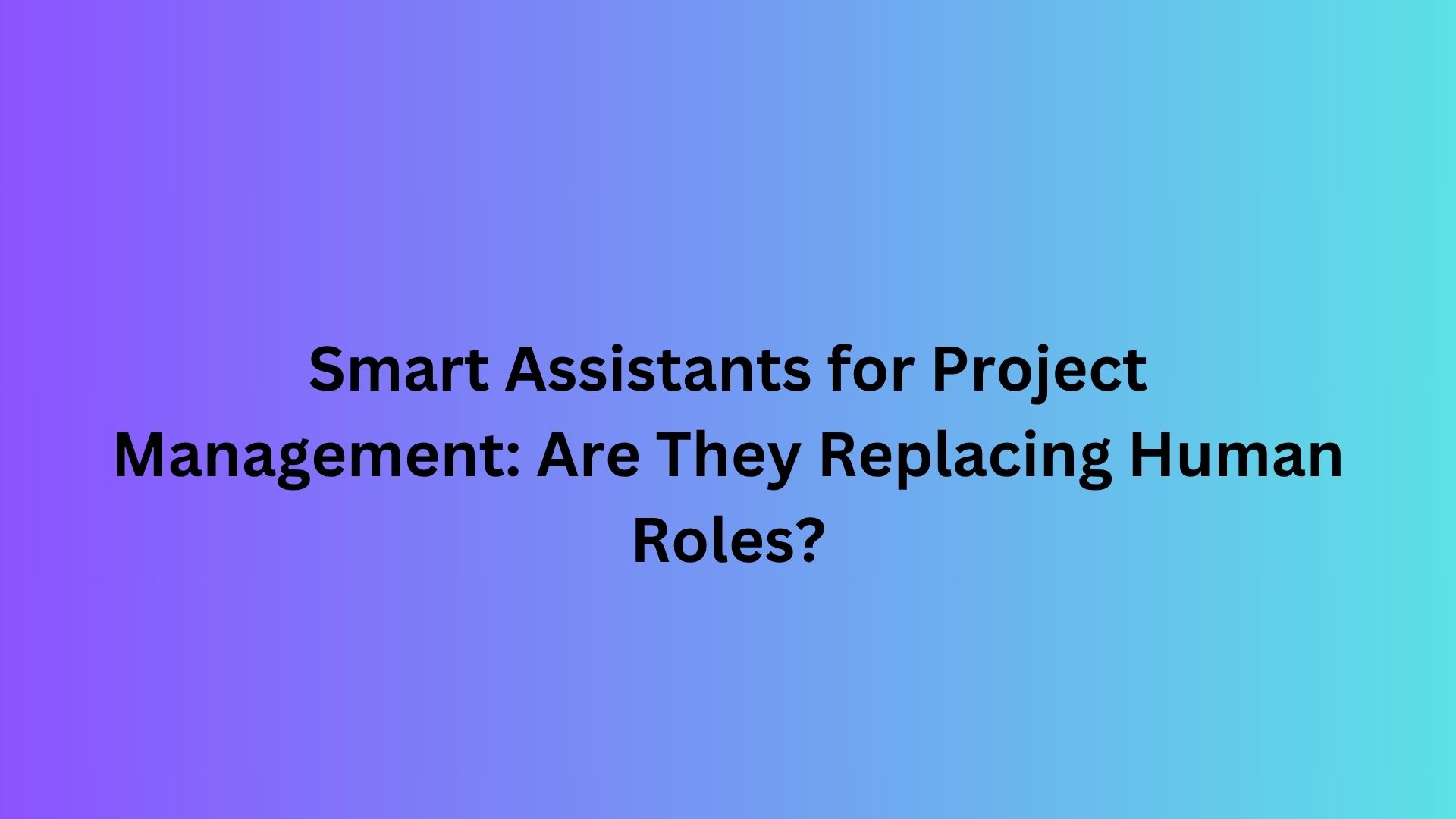Technology continues to reshape the way we work, and project management is no exception. From cloud-based collaboration platforms to AI-powered analytics, digital tools have transformed how teams plan, execute, and monitor projects. Among the most talked-about innovations today are smart assistants for project management. These tools, driven by artificial intelligence and machine learning, promise to streamline workflows, automate routine tasks, and provide actionable insights. But as their capabilities expand, a question arises—are smart assistants replacing human roles in project management?
This debate is particularly relevant in complex industries such as AV integration project management, where technical precision, coordination across multiple disciplines, and strong human relationships are essential for success. In this blog, we will explore what smart assistants for project management can do, where they excel, where they fall short, and whether they are a threat or a complement to human project managers.
What Are Smart Assistants for Project Management?
Smart assistants for project management are software tools that leverage artificial intelligence to support or automate aspects of project planning and execution. They are designed to:
-
Help create project schedules.
-
Track task progress automatically.
-
Analyze project data for trends and risks.
-
Send reminders and notifications.
-
Assist with resource allocation.
-
Provide decision support through predictive analytics.
Some smart assistants integrate with popular project management platforms, while others come as standalone solutions with built-in AI capabilities. These tools are evolving rapidly, moving from simple bots that answer questions to intelligent systems that can anticipate needs and offer strategic guidance.
The Appeal of Smart Assistants in Project Management
There are several reasons why organizations are investing in smart assistants for project management:
1. Efficiency Gains
Smart assistants can automate repetitive tasks such as updating schedules, generating reports, or logging project status updates. This frees up time for project managers and team members to focus on higher-value activities.
2. Improved Accuracy
By relying on data rather than manual entry, smart assistants reduce the risk of human error. They can pull information from multiple sources in real time and present consistent, accurate reports.
3. Enhanced Risk Management
AI-powered tools can analyze vast amounts of project data to detect patterns that humans might miss. For example, they can flag when a task is likely to be delayed based on historical data, helping project managers take proactive measures.
4. Better Communication
Smart assistants can help keep everyone informed by automatically sending updates, alerts, and reminders. They ensure that communication is timely and consistent across the project team.
5. Scalability
Smart assistants can handle large amounts of data and manage complex projects across multiple teams and locations. This makes them valuable for large-scale efforts such as AV integration project management, where coordination across trades, vendors, and client teams is critical.
Are Smart Assistants Replacing Human Project Managers?
Despite the impressive capabilities of smart assistants, they are not replacing human project managers. Instead, they are tools that enhance the work of human professionals. Here’s why:
1. Project Management Requires Human Judgment
Project management is not just about tasks and schedules. It requires critical thinking, negotiation, conflict resolution, and relationship building. These are areas where human judgment is essential. No smart assistant can replace the ability of a skilled project manager to navigate complex interpersonal dynamics, balance competing priorities, or make ethical decisions.
2. Every Project Is Unique
AI tools work best in environments with well-defined patterns and large data sets. But every project, especially in industries like AV integration project management, is unique. Site conditions, client preferences, design changes, and unforeseen challenges require flexibility and creativity—traits that smart assistants do not possess.
3. Communication and Leadership Are Human Strengths
Successful project managers inspire and motivate teams, mediate between stakeholders, and build trust. These are human-centric tasks that smart assistants cannot perform. While AI can facilitate communication, it cannot replace the human touch that is often key to project success.
4. AI Needs Human Oversight
Smart assistants depend on the quality of the data they are given. Human project managers are needed to set up these tools, interpret their outputs, and make final decisions. Without human oversight, AI recommendations could be misleading or misaligned with the project’s goals.
Where Smart Assistants Excel
Although smart assistants are not replacing human project managers, they do add tremendous value in several areas:
Data Management
Smart assistants can organize, analyze, and present data in useful formats. They can create dashboards, generate reports, and highlight key metrics without manual effort.
Task Automation
Routine tasks such as logging updates, assigning tasks, and sending reminders can be handled efficiently by smart assistants. This reduces administrative overhead and minimizes delays caused by forgetfulness or miscommunication.
Predictive Analytics
AI can identify risks based on historical data and current project trends. For example, a smart assistant might detect that a certain type of task consistently takes longer than planned and alert the project manager to adjust the schedule.
Consistency
Smart assistants help enforce standards and processes across projects. They can ensure that documentation, reporting, and compliance activities are performed uniformly.
Limitations of Smart Assistants
Despite their strengths, smart assistants have limitations:
Lack of Context Awareness
AI tools do not understand the full context of a project. They can process data but cannot grasp the nuance of human relationships, political dynamics, or cultural factors that affect project outcomes.
Inflexibility in Unusual Situations
When a project deviates significantly from standard patterns, smart assistants may not know how to respond appropriately. They lack the creativity and intuition that human managers bring to unique challenges.
Dependency on Data Quality
Smart assistants are only as good as the data they receive. Poorly maintained data or incomplete records can lead to inaccurate recommendations.
Limited Emotional Intelligence
AI cannot provide empathy, motivation, or emotional support—qualities that are often needed to keep teams engaged and focused during complex or stressful projects.
Smart Assistants and AV Integration Project Management
In AV integration project management, the use of smart assistants is growing, but their role is clearly supportive rather than replacement. These tools help manage the detailed schedules, large equipment lists, and multi-vendor coordination typical of AV projects. They can:
-
Track equipment orders and deliveries.
-
Monitor installation progress against the timeline.
-
Alert the team to delays or scheduling conflicts.
-
Generate reports for stakeholders.
However, human project managers are essential for handling on-site challenges, coordinating between trades, managing client expectations, and ensuring that systems meet both technical and operational requirements.
The Future: A Collaborative Approach
Rather than viewing smart assistants as replacements for human roles, the future lies in collaboration. The most successful project managers will be those who know how to leverage AI tools to enhance their capabilities. This includes:
-
Using smart assistants to handle administrative tasks so they can focus on strategy.
-
Relying on predictive analytics to inform decisions without ceding control to AI.
-
Integrating AI-driven insights with human experience and judgment.
In AV integration project management, this means combining the efficiency and data-driven insights of smart assistants with the creativity, leadership, and technical expertise of human professionals.
Conclusion
Smart assistants for project management are powerful tools that offer clear benefits, from improving efficiency to enhancing risk management. But they are not a substitute for human project managers. Instead, they represent an opportunity for project professionals to work smarter, focusing their energy on the areas where human skills are irreplaceable.
In complex fields like AV integration project management, success depends on the blend of technology and human expertise. Smart assistants will continue to evolve and play an important role in supporting project teams, but they will not replace the critical thinking, judgment, and leadership that only humans can provide.
As technology advances, project managers who embrace smart assistants as allies rather than competitors will be best positioned to deliver successful projects and lead high-performing teams.



